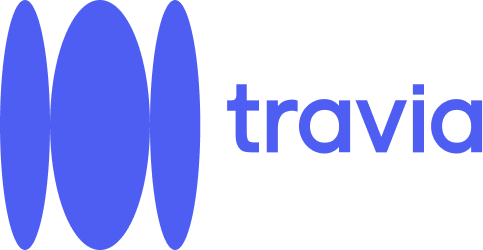Travia Blog
Stay updated with Travia blogs for the latest trends in hospitality and travel. We are committed to keeping you informed and ahead of the curve.


5 Common Hotel Distribution Strategy Mistakes
Managing a successful hotel distribution channel strategy is more than just listing rooms across multiple platforms. With so many booking options available it’s easy to fall into common traps that hurt both revenue and reputation. In this article, we’ll explore some of the most common mistakes hotels make with their distribution strategies. From inconsistent pricing to neglecting key performance indicators and overlooking emerging channels, these issues can quietly eat into profits. Understanding these challenges is the first step toward improving your approach and securing a stronger position in the market.
1. Inconsistent Rate Parity Across Channels
A critical mistake in hotel distribution channels strategy is failing to maintain rate parity, ensuring consistent pricing across all sales channels. When guests find different prices for the same room on various platforms, it creates confusion and diminishes trust in the hotel’s brand.
Maintaining rate parity is essential for preserving brand integrity and minimizing channel conflict. Hotels can achieve this by:
- Establishing clear pricing strategies consistently applied across all channels.
- Regularly monitor and audit all distribution channels to catch rate discrepancies.
- Communicating openly with distribution channels partners about pricing policies to prevent discrepancies.
2. Not Monitoring Distribution Channels Performance
Many hotels adopt a “set it and forget it” approach to their hotel distribution strategy, failing to track the performance of individual channels. This can lead to inefficient spending and lost revenue opportunities.
It’s essential to regularly monitor key performance indicators (KPIs), including commission and distribution costs, average daily rate (ADR), which channel brings the most occupancy volume, cancellation rates, and guest satisfaction. By analyzing this data, hotels can identify which channels deliver high-value bookings and which may require renegotiation or reallocation. Prioritizing high-margin channels like direct booking helps reduce dependency on costly OTAs.
3. Not Collaborating Enough with B2B Hotel Distribution Partners
One of the most underestimated pitfalls in hotel distribution strategy is failing to build and nurture strong partnerships with B2B distribution channels. In the rush to secure bookings from multiple sources, hotels often focus heavily on consumer-facing platforms (OTAs and direct booking engines) while neglecting the immense potential of the B2B marketplace.
Neglecting collaboration with these partners can result in missed revenue opportunities from high-value segments and poor visibility in markets where B2B players dominate. To enhance collaboration with B2B hotel distribution partners:
- Leverage B2B marketplace to distribute inventory globally while ensuring rate parity and inventory accuracy.
- A cloud-based Property management System connects all your channels – direct and indirect – in real time across both consumer and B2B distribution channels.
In a landscape where hotel distribution is increasingly complex, proactive B2B collaboration ensures a diversified revenue stream and reduces dependence on high-cost consumer platforms like OTAs. By adopting this approach, hotels can also drive more stable, predictable bookings and build a reputation as a trusted partner within the broader hospitality ecosystem.
4. Lack of Marketing and Brand Exposure
Many hotels rely heavily on OTAs for exposure, often neglecting their own marketing efforts. While OTAs provide reach, their commission fees cut into profits. Hotels should balance their distribution strategy by investing in their own direct sales channels through SEO, social media, and email marketing.
By relying solely on third-party channels, hotels may limit their ability to promote their brand directly and increase profitability. Hotels must be intentional in their approach, either by investing in their own marketing efforts to strengthen brand control or by partnering selectively with distribution channels that support visibility without diluting their brand presence.
5. Ignoring Mobile and Metasearch Channels
Today’s travelers increasingly rely on mobile devices and metasearch platforms like Google Hotel Ads and TripAdvisor to research and book accommodations. Ignoring these channels limits a hotel’s visibility and reduces its market share.
To optimize for mobile and metasearch:
- Implement responsive web design for an optimized mobile experience.
- Simplify booking processes and integrate digital wallets.
- Actively participate in metasearch platforms with real-time rate updates and consistent pricing.
Mobile technology has fundamentally changed the way travelers research and book hotels, requiring hoteliers to adapt their distribution strategies accordingly. By embracing mobile and metasearch, hotels can drive direct bookings and reduce reliance on high-commission channels. This approach also enhances the guest journey by offering a seamless, convenient booking experience across devices.
Conclusion
A thoughtful hotel distribution strategy can help hotels cut costs, increase bookings, and keep guests happy. But it’s easy to fall into patterns that hurt more than help. Avoiding these five critical mistakes will set your hotel on the path to long-term success.
As the distribution landscape grows more complex, it’s increasingly important for hoteliers to reassess not just where their inventory is listed, but also who they choose to partner with. Integrating specialized B2B marketplaces like Travia into the distribution strategy can open access to high-value travel agents and corporate clients while preserving control over rates and availability.
Remember, your distribution strategy is not static. As market trends shift, technology advances, and travelers’ expectations change, your approach needs to evolve too.

How to Streamline Your Travel Agency Business for Success in 2025
The travel industry in 2025 is more competitive and digitally driven than ever. To run a successful travel agency business, agencies must go beyond simply selling destinations. Clients expect efficient service, real-time updates, and personalized experiences. The key to staying ahead lies in streamlining operations, embracing automation, and building strategic hotel partnerships. In this article, we explore how travel agencies can use modern tools and insights to improve performance, boost client satisfaction, and secure long-term growth.
Automate Repetitive Tasks Using Travel Booking Software
One of the fastest ways to increase efficiency is to automate everyday tasks that consume time and resources. From processing bookings and managing payments to sending client follow-ups and updating itineraries, manual tasks can slow down operations and create room for error.
Adopting travel booking software allows agencies to streamline these repetitive tasks. There are platforms that offer real-time inventory management, dynamic pricing, automated payment systems, and instant confirmations. These functions reduce manual workload and ensure that clients receive quick, reliable service. Teams that rely on automation can shift their focus from logistics to relationship-building and business development, which are essential components of a thriving travel agency business.

Strengthen Your Hotel Partnerships
Strong hotel relationships are a crucial role in helping travel agency businesses offer better service and increase profit margins. When you partner with trusted hotels, you gain access to more competitive rates, exclusive offers, and enhanced availability, all of which contribute to higher client satisfaction.
To make the most of these partnerships, agencies should adopt a dual strategy that combines the efficiency of B2B hotel booking platforms with the personalized value of direct relationships. B2B platforms provide real-time access to a wide range of accommodations, allowing agents to quickly secure rooms at better rates and manage bookings with ease. This streamlined process reduces the time spent on back-and-forth communication and ensures fast, reliable service for clients.
At the same time, cultivating direct relationships with select hotel providers can unlock unique benefits such as tailored packages, better pricing, and priority availability. These direct booking strategies help agencies differentiate their offerings and deliver more personalized travel experiences.
By balancing the convenience of B2B systems with the depth of direct hotel partnerships, a travel agency business can offer flexible, competitive, and memorable experiences that drive client loyalty and business growth.
Evaluate and Improve Operational Workflows
Regular evaluation of your internal processes is necessary to maintain a streamlined operation. Many agencies continue using outdated methods without realizing the impact on productivity and customer service. By assessing key performance indicators like booking conversion rates, revenue trends, and client feedback, you can identify inefficiencies and implement meaningful improvements.
This kind of ongoing analysis allows you to refine your workflows, enhance your team’s productivity, and ensure consistent service quality. It also helps in making informed decisions about where to invest time and resources, from staff training to upgrading software solutions.
Use Real-Time Data Analytics for Strategic Growth
Data is one of the most valuable resources available to your travel agency business. Using real-time data analytics, agencies can monitor trends, understand traveler preferences, and respond quickly to market changes. Access to current data enables you to make informed decisions about marketing strategies, pricing models, and customer service enhancements.
For example, analyzing booking patterns can help you tailor promotions to specific traveler segments or predict peak travel periods. Understanding customer behavior allows you to personalize services, improve engagement, and increase repeat bookings. Data-driven decision-making strengthens your agency’s ability to compete in a fast-moving industry.
Final Thoughts
Success in the travel agency business today is measured by more than just the number of trips sold. Agencies must deliver exceptional experiences, operate efficiently, and adapt quickly to change. Automating repetitive tasks through reliable travel booking software, strengthening hotel partnerships, and leveraging B2B hotel booking platforms can transform how your business functions.
By combining these tools with regular process evaluations and the power of real-time analytics, you create a foundation for long-term success. Clients receive better service, staff members work more efficiently, and your agency is better positioned to grow in a competitive environment.

How to Enhance Your Travel and Hospitality Connectivity
Whether you’re working as a travel agent or running a hotel, establishing strong relationships between travel agencies and accommodations is crucial for maximizing annual revenue. Travia’s mission is to serve as the direct link that facilitates these connections, bringing substantial benefits to hotel chains, independent hotels, bed and breakfasts, and more. By offering a platform that streamlines the booking process, Travia aims to connect these accommodations with top-tier travel agencies, granting access to real-time inventory and updates.
Streamlining the Booking Process
One of Travia’s primary objectives is to increase bookings throughout the year by leveraging the expansive network of travel agents. Achieving this involves a strategic approach that includes building partnerships, providing attractive incentives for travel agents, and ensuring a seamless booking experience. Travia’s unique system is designed to offer competitive commission rates to travel agents, making it an appealing platform for both parties involved.
Efficiency and Cost Savings
Travia is not just about improving the booking process; it’s also about saving time and reducing costs for hotel managers. Traditionally, hotel managers had to manually input bookings received from travel agencies, a process that was both time-consuming and prone to errors. With Travia, this tedious step is eliminated. The platform seamlessly integrates with the hotel’s booking system, automating the entry of bookings and ensuring accuracy and efficiency.
Real-Time Confirmations
By removing the need for manual entry, Travia streamlines operations for both hotels and travel agencies. When a travel agency sends a booking request, it receives instant confirmation, thus avoiding the delays associated with traditional booking methods. This real-time communication ensures that travel agents can provide immediate responses to their clients, enhancing the overall customer experience.
User-Friendly and Cost-Effective
Another significant advantage of Travia is its user-friendly interface. Setting up the platform is straightforward, with no setup fees or exorbitant commissions to worry about. Hotels can start utilizing the system and selling their services almost immediately. Moreover, Travia’s dedicated support team is always available to assist with any questions or issues that may arise, ensuring a smooth and hassle-free experience. Setting up accommodations and forming partnerships with travel agencies can be completed in less than an hour, making it an incredibly efficient solution.
Centralized Management and Dynamic Pricing
One of Travia’s standout features is its ability to manage all contracts and partners from a centralized platform. This not only simplifies the management process but also allows for dynamic pricing and special discounts for group bookings. Additionally, Travia supports allotment bookings, which help hotels minimize the risk of unsold rooms. By offering price advantages to contractual partners, Travia ensures that all parties benefit from the arrangement.
A Revolutionary Solution for the Travel Industry
Travia represents a cutting-edge solution for the travel and hospitality industry. Travel agents gain access to live inventory and can customize upcoming tours within minutes, providing a highly flexible service to their clients. Meanwhile, hoteliers benefit from the automation of booking entries, saving time and reducing the potential for errors.
Travia is revolutionizing the way travel agencies and accommodations connect and operate. By offering a streamlined, efficient, and cost-effective platform, Travia not only enhances the booking process but also strengthens partnerships and boosts year-round bookings. For travel agents and hoteliers alike, Travia is an indispensable tool that delivers real-time connectivity and seamless service, setting a new standard in the travel industry.

Staying Relevant In A Modern Hospitality Landscape
Navigating the ever-evolving technological landscape is a high pressure operation. However, innovative solutions like Travia are transforming the way hotel managers approach these challenges, offering tools to streamline workflows and automate processes. Here’s how Travia can help hotel managers simplify their work and enhance their operations in a demanding hospitality environment.
1. Seamless Integration with Property Management Systems
One of the most significant advantages of Travia is its seamless integration with existing property management systems (PMS). This integration ensures that all aspects of hotel operations, from room availability and pricing to guest check-ins and check-outs, are synchronized in real-time. Real-Time Data Access: Hotel managers can access real-time data on bookings, cancellations, and guest preferences, enabling them to make informed decisions quickly. This level of insight is crucial for optimizing room occupancy and revenue management.
2. Operational Efficiency
Travia provides a single platform where hotel managers can oversee all aspects of their online distribution strategy. This includes updating room rates and availability, generating detailed reports and analytics. By centralizing these functions, Travia reduces the administrative burden and improves operational efficiency. Automated Reporting: The platform’s automated reporting tools generate detailed insights into booking patterns, guest preferences, and market trends. These reports help managers make data-driven decisions to optimize pricing strategies, marketing efforts, and service improvements.
3. Expanding Market Reach
Travia’s platform provides hotels with access to a vast network of travel agencies, tour operators, and corporate clients, expanding their reach and attracting a broader audience. Increased Exposure: By connecting with Travia’s extensive network, hotels can tap into new markets and attract new business opportunities and travel agencies who might not have discovered them otherwise. This increased exposure can lead to higher occupancy rates and greater revenue.Showcasing Properties: Travia offers tools to effectively showcase hotel properties to travel agents and potential guests. High-quality images and detailed descriptions can entice more bookings and enhance the property’s online presence.
4. Enhancing Staff Efficiency
By automating routine tasks, Travia enables hotel staff to work more efficiently and focus on providing exceptional service to guests. Task Automation: Routine tasks such as updating bookings, managing inventory, and gives hotel staff opportunities to focus on other tasks and servicing the guests. Travia reduces the workload on staff and minimizes the risk of human error. Improved Collaboration: Travia’s centralized platform facilitates better communication and collaboration among hotel staff. Real-time updates and notifications ensure that everyone is on the same page, improving overall operational efficiency.

Boost Bookings Throughout The Year
The hospitality industry has witnessed a significant shift in how hotels attract and retain guests. Travelers now have countless options at their fingertips when it comes to choosing accommodations for their journeys.
Travia offers hotels an opportunity to boost bookings and elevate their online presence. In this digital landscape, hotels are constantly seeking innovative solutions to streamline operations, maximize revenue, and enhance the guest experience. Travia is revolutionizing the way hotels connect with travelers and manage their inventory. This comprehensive platform offers a host of benefits that can help hotels thrive in today’s competitive market.
Let’s explore how hotels and accommodation properties can leverage Travia to their advantage:
Seamless Integration with Property Management Systems
One of the key advantages of Travia is its seamless integration with hotel management systems. This integration allows hotels to effortlessly synchronize their room availability, rates, and inventory across multiple channels, including OTAs, search engines, and direct booking platforms. By automating these processes, hotels can eliminate the need for manual updates and reduce the risk of overbooking or double bookings. This saves time and resources but also ensures a more efficient and error-free booking process for both guests and hotel staff.
Reduce Administrative Burden
Managing bookings, processing payments, and handling guest inquiries can be time-consuming tasks for hoteliers. Travia simplifies these processes by providing a centralized platform where hotels can manage all aspects of their online distribution strategy. From updating room rates and availability to generating detailed reports and analytics, Travia empowers hotels to streamline their operations and focus on delivering exceptional guest experiences. Hotel managers can now allocate more time and resources to other areas of their business, such as marketing, guest services, and property management.
Increased Exposure to Travel Agencies
In today’s interconnected world, collaboration is key to success. Travia offers hotels access to a vast network of travel agencies, tour operators, and corporate clients, thereby expanding their reach and exposure to potential guests. By partnering with Travia, hotels can tap into new markets and attract travelers who may not have discovered them otherwise. Additionally, Travia provides hotels with valuable tools to showcase their properties and entice travel agents to book directly with their property.
Travia presents a compelling opportunity for hotels to boost bookings, streamline operations, and enhance their online presence. By leveraging its seamless integration with hundreds of PMS systems, reducing administrative burden, and increasing exposure to travel agencies, hotels can stay ahead of the curve and thrive in today’s dynamic marketplace. Whether you’re a boutique hotel or a hotel chain, Travia offers a comprehensive solution to help you achieve your business goals and provide exceptional guest experiences.

Revolutionizing Hotel Bookings: Welcome to Travia Marketplace
Founded in 2019, Travia emerged as a solution to bridge the communication gap between travel agencies and hotels. This innovative company was born from the legacy of GODO, a leading travel tech enterprise established in 2012, known for its comprehensive solutions for the hospitality industry.
The Legacy of GODO
GODO has been at the forefront of travel technology for over a decade. Working with over 1,100 hotels and guesthouses worldwide, GODO has consistently developed innovative tools that enhance operational efficiency for hospitality providers. Their experience and insights into the industry’s challenges laid the foundation for Travia. Finding a niche to bridge the gap between hoteliers and travel agents and allowing travel agents to book directly into the hotel’s PMS without needing to utilize OTA pages.
The Birth of Travia
Through its extensive collaboration with various hotels and travel agencies, GODO identified a significant pain point in the industry: the cumbersome and time-consuming communication process between hotels and travel agencies. The endless email threads, long waits for responses, and uncertainty around availability and pricing were major obstacles.
Seeing the need for a streamlined solution, GODO started Travia. This new platform was designed to create an instant, seamless link between travel agencies and hotels. With Travia, users can save time, increase efficiency, and deliver superior service to their clients. The aim is to eliminate the back-and-forth emails, reduce waiting times, and provide clear, real-time information about availability and pricing.
The Travia Advantage
Travia stands out by offering a robust platform that simplifies and accelerates the booking process. Travel agencies can now instantly check hotel availability and prices, making the booking experience smoother and more efficient. This not only enhances operational efficiency but also significantly improves client satisfaction.
The connection with GODO means that users benefit from a host of well-established products. If you appreciate the efficiency and innovation of Travia, you’ll likely find GODO’s other offerings interesting as well. GODO Property is a premiere PMS that centralizes all your hotel operations. It includes a fully functional booking engine, channel manager, detailed reporting, and numerous OTA integrations. For smaller businesses, GODO offers Booking Factory, a hotel management system designed for sleek and simple property management methods. These products further support hospitality operations, ensuring that hoteliers can manage their properties effectively and provide top-notch service to their guests.
Looking Ahead
As Travia continues to grow, it remains committed to transforming the travel tech landscape. By leveraging the expertise and innovation that GODO has honed over the years, Travia is set to become a vital tool for travel agencies and hotels alike. The future promises more advancements and solutions that will further streamline the travel booking process, making it easier and more efficient for everyone involved.





